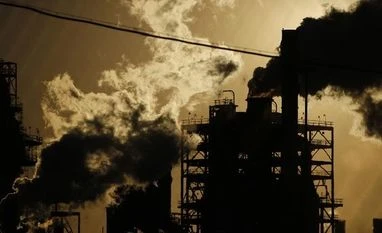The United Nation’s Intergovernmental Panel on Climate Change (IPCC) released the second part of its sixth assessment report on Monday. Vetted and approved by 270 authors and 195 governments, it tells the world how climate change may spell disaster for humanity. The third and final part of this report is likely to come out in April this year.
The first assessment report telling about the effects of climate change was released way back in 1990. The four subsequent reports were published in 1995, 2001, 2007, and 2015.
The latest report has for the first time assessed the regional effect of climate change. According to the assessment, several big cities of the world are at risk. The report warned that Mumbai could face flooding due to sea-level rise while Ahmedabad was at risk of facing a serious heatwave.
The panel also warned that the ability of humans and that of nature to adapt to climate change was at risk. And they may not be able to adapt anymore if there is further rise in global warming. It noted that over 3.5 billion people or 45% of the global population was living in highly-vulnerable areas now. UN secretary-general António Guterres went on to dub the report as an “atlas of human suffering”. He also said that fossil fuels are “choking humanity”.
The report described India as one of the most vulnerable countries. It said that about 35 million people could face annual coastal flooding by 2050. While 45-50 million are at risk by the end of the century. The IPCC also warned that the damage to Mumbai from the sea-level rise could be up to $162 billion a year by 2050.
According to Down to Earth, India’s country-level social cost of carbon emission was estimated to be the highest at $86 per tonne of CO2. It means the Indian economy will lose $86 by emitting each additional tonne of CO2. India is followed by the US, where the economic damages would be $48 per tonne of CO2 emission. Saudi Arabia is close behind at $47 per tonne of CO2 emission.
The report also flagged that the world will see a rise in vector-borne diseases like dengue and malaria. And it also claimed that climate change will lead to an increase in mental health issues.
The first part of this report, which was released in August last year, had said that global average temperature will see 1. 5 degree celsius of warming in next 20 years from the pre-industrial (1850-1900) level. The panel had called it a “code red for humanity”.
The panel said that rising sea levels and ground water scarcity will have a direct impact on the Indian agriculture sector. Production of wheat, pulses, coarse and cereal yields could fall almost 9 per by 2050 in the country.
In the southern part of the country, maize production could fall by 17% if emissions are high. And these fall in production could cause price spikes in India, threatening food affordability, food security and economic growth, the report went on to say.
It is also estimated that both the Ganga and Brahmaputra river basins will witness increased flooding due to climate change. And continued climate change will also cause decline in fisheries.
Countries build policy responses to tackle climate change on the basis of finding of IPCC reports. The panel has now clearly said that if the temperature rise soared past the 1.5°C threshold from the pre-industrial times, several changes could be irreversible. The panel has said that the 2°C-target could be disastrous. So the governments world over should ensure that lack of funds and political commitment should not come in the way of keeping the global mercury in check.
)